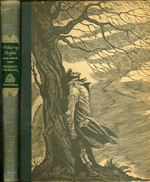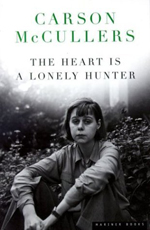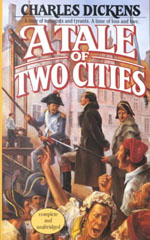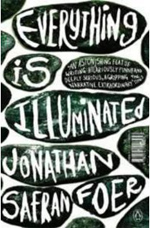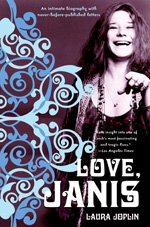Hopefully, summer reading lists are a thing of the past for Pulse readers. Even for the most voracious readers, something about a school-assigned list of required reading is incredibly constricting. Furthermore, a book recommendation, in most cases, has little value unless the recommendation comes from someone who knows you well. I’ve always been an avid reader, and I’ve gone through numerous genre phases, from modernism to postmodernism, to somewhere between (read Jorge Luis Borges’ collected fictions). From reading any 19th century work deemed “classic,” to perusing the bestseller list with tentative curiosity, to just reading the most disgusting thing I could find (Chuck Palahniuk’s Haunted truly isn’t that bad). Devouring band biographies and books on musical subcultures has been an ongoing thing, and on that note, Just Kids by Patti Smith, the Kurt Cobain journals, Cash by Johnny Cash (which I read inspired by John Cusack’s endorsement in High Fidelity), Infinity Blues or Hello Sunshine (both poetry collections by Ryan Adams, whose incoherency in these books I found to be interesting), London’s Burning: True Adventures on the Front Lines of Punk, 1976-1977 by Dave Thompson and Please Kill Me: The Uncensored Oral History of Punk by Legs McNeil and Gillian McCain are all worth picking up.
But I digress. Since summer typically allots more time for it, maybe some readers can crack the spines of the books on my list if they haven’t already, smell that exquisitely smelly smell of old pages and find the same magic in them that I did. This list may seem obvious, but to me, that says a lot about the books. So, to borrow words from John Cusack (actually Nick Hornby, who has a fun catalog of his own), my top five favorite books of all time (up to this point), in no particular order, are as follows:
Wuthering Heights by Emily Brontë
This is the only love story I’ve ever read that didn’t twist my stomach, and I’m still unable to pinpoint the exact appeal. A wise man once told me that it would be the most messed up episode of Jerry Springer ever if the characters were to appear on the show. Like the others in the love circle, Cathy and Heathcliff are immature, rash, selfish and hard, but because they are so easy to despise, I love them. Set on a morbid, gothic sort of moor pocked with heather, Cathy and Heathcliff destroy themselves over the span of decades, but at the core is this wild, unshakable love trying to unveil itself. It’s desperate, and something in it got me. The novel has but one rational anchor—the servant and narrator, Nelly—who offers some of the best lines. I always liked when Heathcliff is trying to pretend he has no concern for Cathy, and Nelly harbors the thought: “Poor wretch! You have a heart and nerves the same as your brother men! Why should you be anxious to conceal them? Your pride cannot blind God! You tempt him to wring them, til he forces a cry of humiliation.” But the novel’s most gripping and famous part is when Nelly presses Cathy for the why and how behind her feigned love for Linton, which is followed by THE Wuthering Heights line, probably made more famous when it was uttered inaudibly by Renée Zellweger in Cold Mountain: “My love for Linton is like the foliage in the woods. Time will change it, I’m well aware, as winter changes the trees. My love for Heathcliff resembles the eternal rocks beneath—a source of little visible delight, but necessary.” The novel is that much more powerful knowing that its author, a reclusive individual, presumably had nothing to go on when she dreamed up this dreary lovescape.
The Heart is a Lonely Hunter by Carson McCullers
I found this in a dusty bookstore in downtown Franklin when I was 13 and bought it for no reason. I saw McCullers’ morose lips and her basset eyes on the cover of her first novel and thought, “Here’s another old, sad bastard book written by an old, sad bastard.” I read it and thought it was a ridiculous waste of time. It wasn’t about anything. Nothing happened. And then, two weeks later, I felt the weight of it and couldn’t stop crying. Set in 1930s Georgia, the misfits simply live out a fragment of their lives within the pages. They are distantly connected in that they all have the fire inside them, but their own lives are smothering them. No one can hear them, and no one can see them. I’ve never read a book that takes the concept of solitude and so vividly magnifies it and turns it into such a horrific monstrosity, and the author does it with a stoic voice. It would likely be less effective if McCullers piled on the sympathy. Her tone is quiet and level, bordering on unfeeling, and you suffocate like the characters. It broke my heart.
A Tale of Two Cities by Charles Dickens
Yes, seriously. The thing about Dickens is that his work is sort of built for parody nowadays. You’ve got these starving, beaten youths in knickers running around slummy 18th century streets, and unless you pay close attention, you don’t know what’s going on. The wrong guy gets executed. Everyone’s in disguise, everyone has a murdering, traitorous doppelganger. It’s laughable. But in the midst of Dickens’ urban adventures, the guy drops some serious knowledge. In A Tale of Two Cities, the narrator muses, “A wonderful fact to reflect upon, that every human creature is constituted to be that profound secret and mystery to every other. A solemn consideration, when I enter a great city by night, that every one of those darkly clustered houses encloses its own secret; that every room in every one of them encloses its own secret; that every beating heart in the hundreds of thousands of breasts there, is, in some of its imaginings, a secret to the heart nearest it!” And he knows it’s serious knowledge, damn it, because he ends it with an exclamation! Abstract writing is fine, but I like that Dickens’ work is so plot-oriented. The stories are more tangible, and Two Cities, I think, is the best of them. It’s a bloodbath, and yet there’s a humorous whimsical quality, like the characters would probably skip cheerily over a severed head if it rolled from the guillotine into their path.
Everything Is Illuminated by Jonathan Safran Foer
This one unfolds at odd angles, skipping back and forth between the narrator’s search for a woman who saved his grandfather from the Nazis, to excerpts from the narrator’s novel about it. When I read it, I just saw the whole story in color. The characters are vivid, and the writing is gorgeous and human, particularly when Foer is describing intimacy and examining the concept of love, which is one of the novel’s primary themes. Much of the dialogue, in contrast, is crude and hilarious, particularly between Jonathan and the two natives—a young man and his grandfather, plus his “seeing-eye bitch,” Sammy Davis Jr., Jr., who lead him through the Ukraine. I wouldn’t swallow the historical aspects as fact, but the writing is beautiful, and the movie, which closely mirrors the book, is worth seeing as well.
Love, Janis by Laura Joplin
Since I was really little, I idolized this particular feral, sultry blues chanteuse, and Love, Janis was the first biography about her that I ever read. I’m fairly sure it was the first rock biography I ever read, period, which made it more significant for me. It’s a great Janis bio to start with if you’re into her at all, because it’s written by an insider—younger sister Laura—and second, because it chronicles Janis’s entire life. Her sister doesn’t mask Janis’s drug abuse, but still conveys what a genuine and talented individual she was. It begins with home life with the Joplin family and works its way through Janis’ teenage insecurities, her rising success and too-early death. Included are photos and tons of the artist’s letters written home to her family, which are girlish and naïve. In one letter written in 1967, she gushes about Paul McCartney coming to see a Big Brother show (“He came to the Matrix & saw us & told some people that he dug us. Isn’t that exciting!!!!”). There’s this image of her as a fast-living, drinking-and-drugging wild child, but you see an innocence and sincerity seeping through the letters, which blow away the pretense of aloof rock star.



